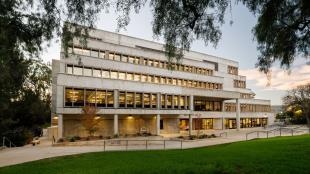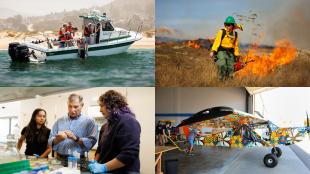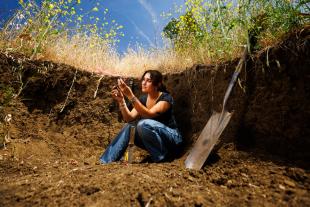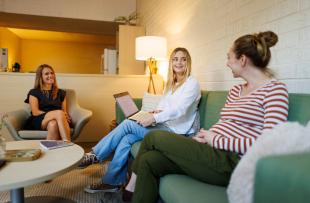Students Design Resilience Room to Make SLO Farmers' Market Fun for All
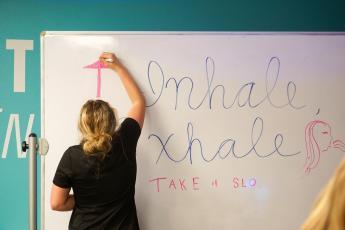
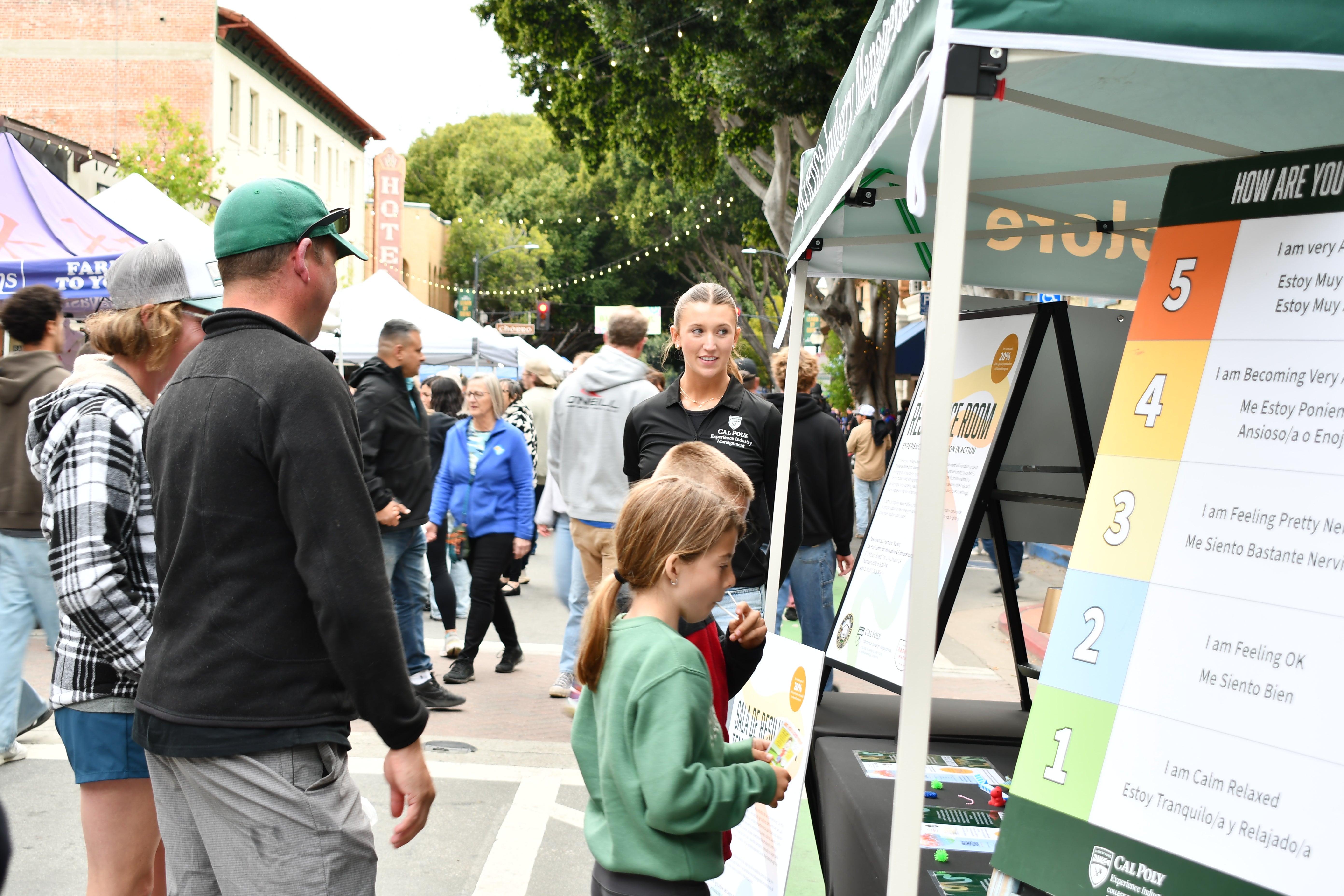
The beloved Downtown SLO Farmers’ Market recently became more inclusive to an often-unseen demographic, thanks to students in Cal Poly’s Experience Industry Management Department. For five weeks during spring quarter, students created a pop-up resilience room for neurodivergent individuals, providing an atmosphere to help calm overstimulated people and allow them to re-enter the event, versus leaving the market altogether.
Resilience rooms, also known as spaces of reprieve, are becoming common in sporting and entertainment venues, but research in how they can be implemented in agriculture is lacking, according to experience industry management lecturer Amber Karson, CEO of Karson Butler Events.
Karson, along with professors Marni Goldenberg and Keri Schwab and 15 students, originally hosted a resilience room at the last fall. Students then extended the offering locally at the farmers’ market as a means of understanding how a resilience room can be implemented in the agritourism sector.
“In the industry, clients are looking at how to create neuro-inclusion in everyday experiences with loud, noisy and overstimulating environments,” Karson said. “The space not only offers a safe place to reset, but also serves as a tangible reminder to vendors, visitors and local businesses about the importance of inclusive design.”
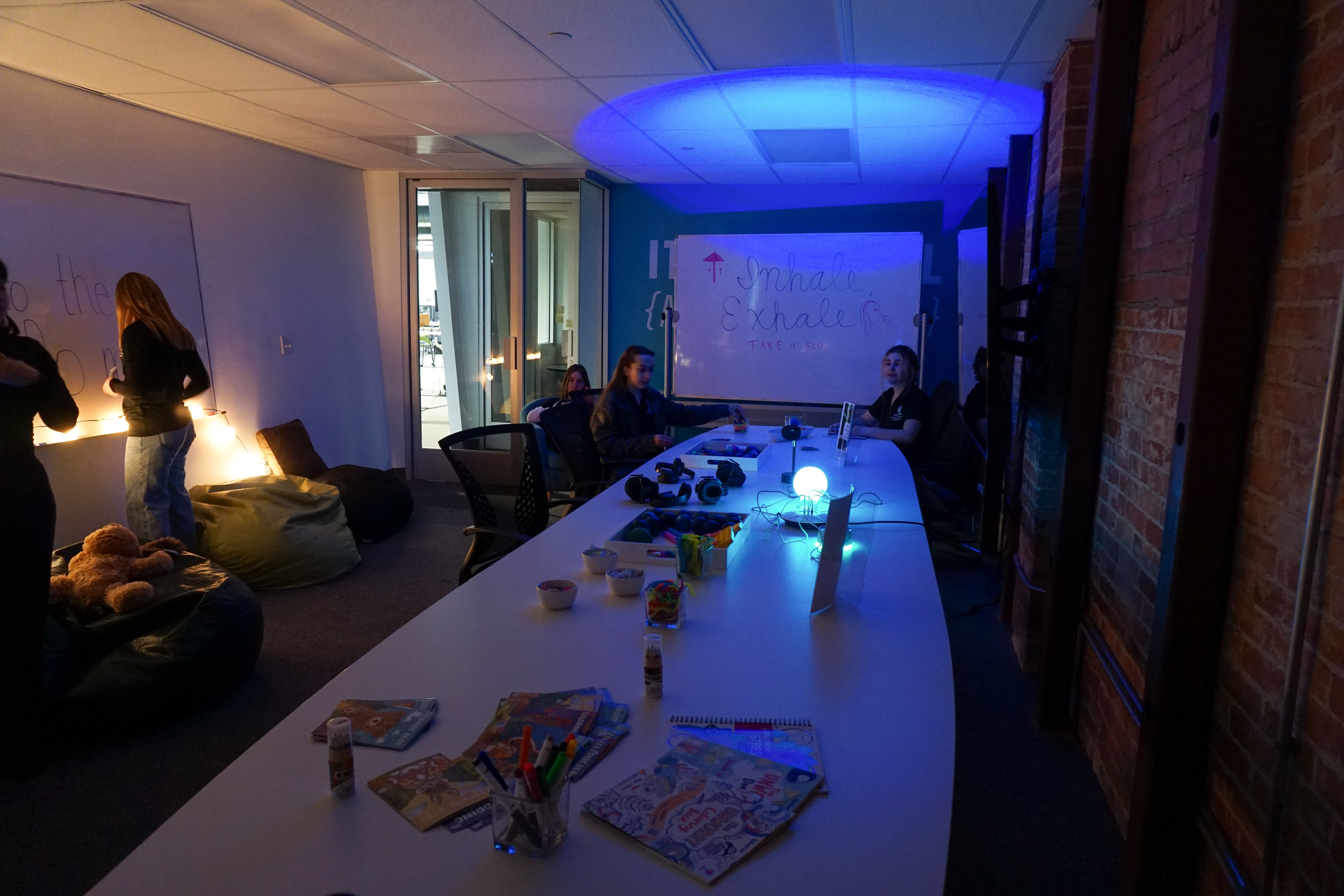
Butler added that scientists estimate nearly 40% of the world’s population experiences neurodivergence, which refers to the differences in the way a brain perceives the world that make it especially reactive to sensory experiences.
“This project is for the benefit of our community,” Schwab said. “I believe that promoting general social goods such as the resilience room are necessary to help people and create a healthy lifestyle.”
To create the space, professors and students forged a unique partnership between the Experience Industry Management Department, the Center for Innovation and Entrepreneurship and the City of San Luis Obispo. Funds from the city’s Diversity, Equity and Inclusion marketing grant helped bring the resilience room to fruition.
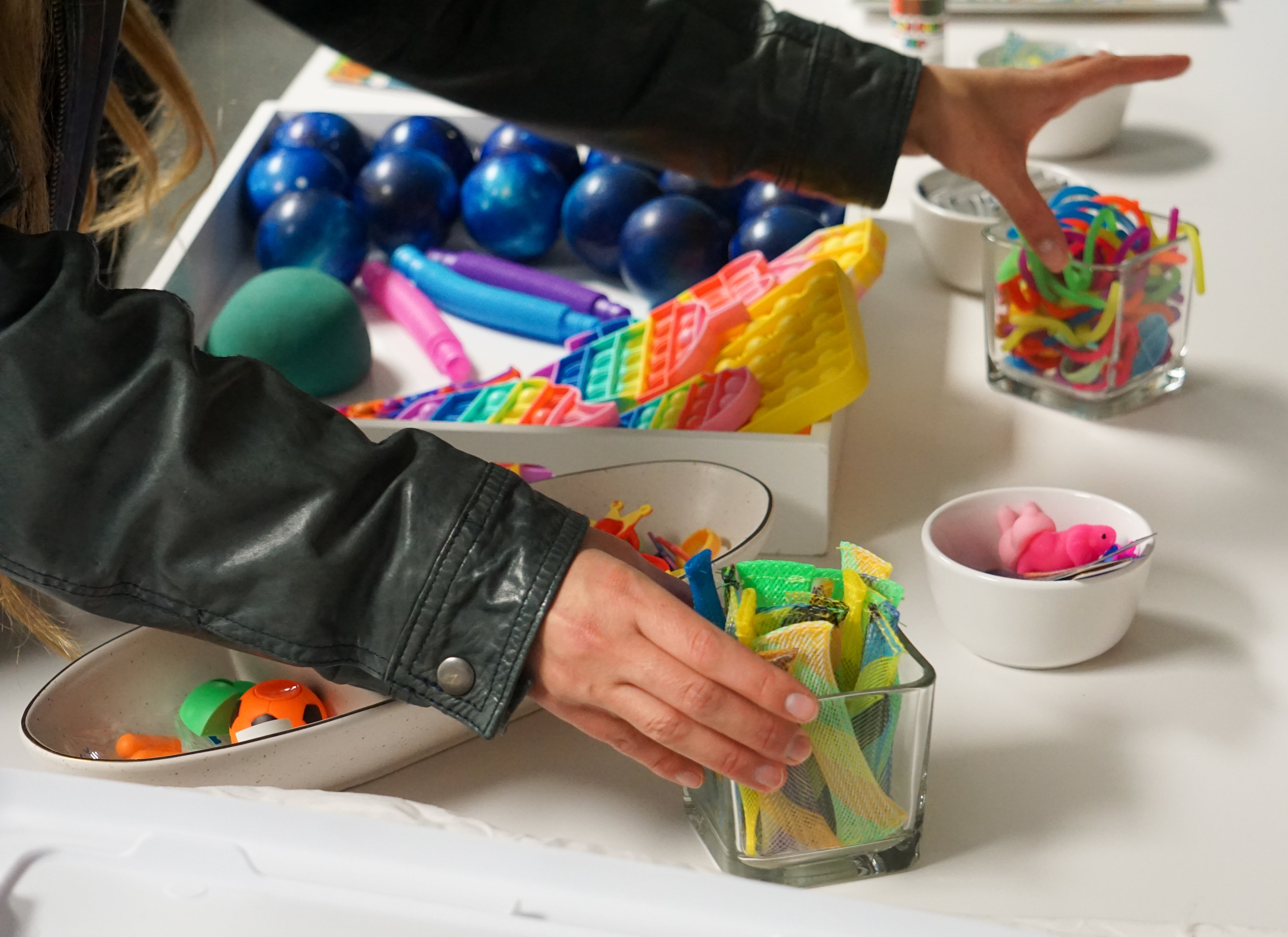
Kristine Rumbaugh, a second-year recreation, parks and tourism administration major interested in working in the hotel industry, said the project inspired her to create a more inclusive atmosphere in the places she will work in the industry.
“It has expanded my awareness of event space inclusivity and is shedding light on a large population since neurodivergence is something you can’t see.”
Students served in various roles throughout the project. Some worked a booth to generate awareness about neurodivergence and the resilience room, while others welcomed guests into Cal Poly’s Center for Innovation and Entrepreneurship, where the room was staged.
Makena Ray, a second-year recreation, parks and tourism administration major, worked on the project for two quarters, overseeing the creation of a research methodology and establishment of a target audience.
“We hope to put results into the public to implement and be beneficial in high-intensity events like the farmers’ market,” Ray said. “It’s powerful seeing the amount of people who come by the booth recognizing this is a need.”
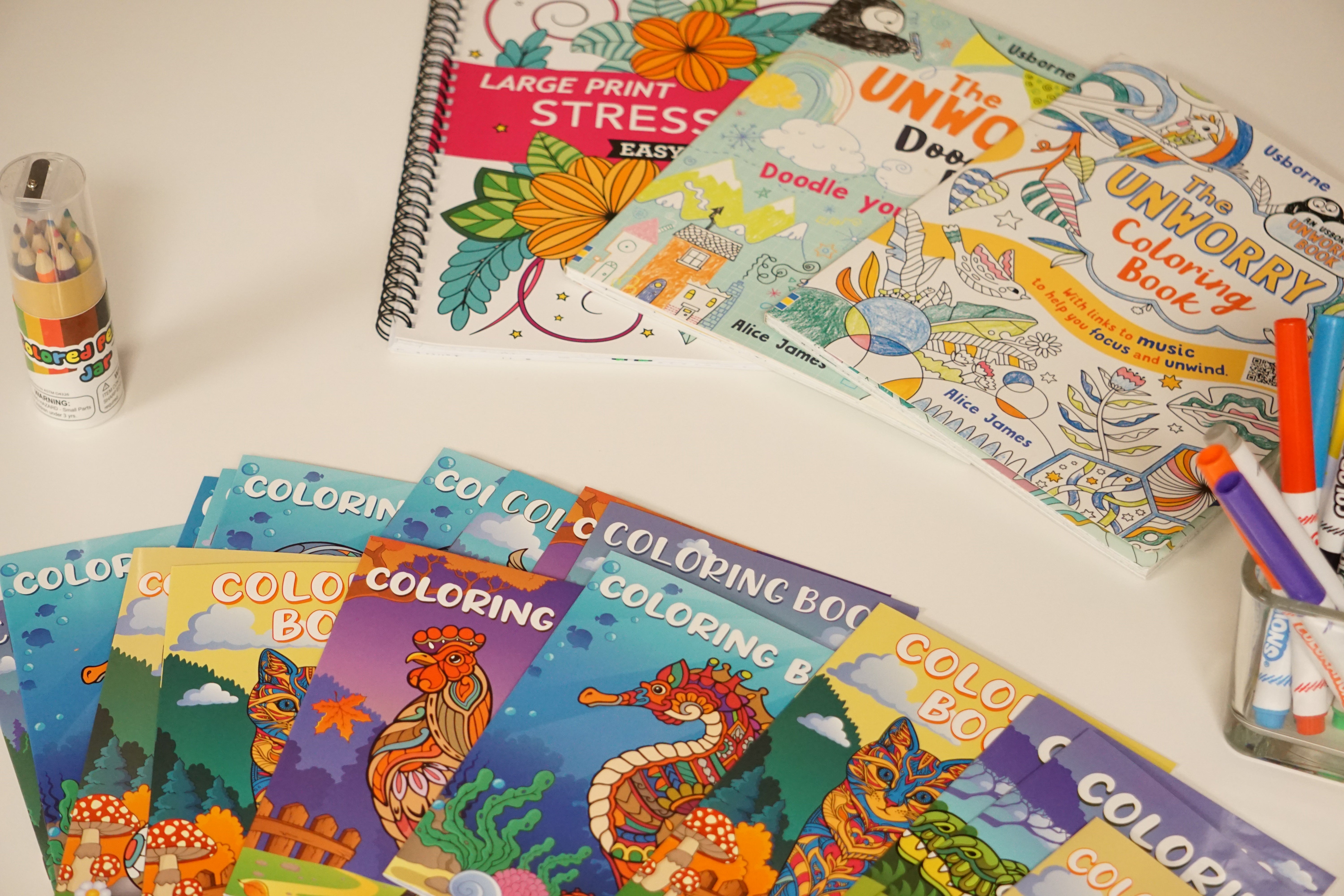
Managing the pop-up booth included handling surprises the team hadn’t initially anticipated, like welcoming children into the resilience room, Ray said. But hosting younger attendees broadened the research results and allowed the students to understand the effects of the agritourism space for various age groups.
“The resilience room sets a new standard for community events, one where inclusivity and accessibility are non-negotiable,” Karson said. “It’s encouraging event organizers and community leaders to rethink how spaces are designed and experienced.”
Moreover, the project generated interest in adopting similar practices across other local gatherings. Goldenberg shared that the presence of the resilience room has already made waves amongst farmers’ market attendees.
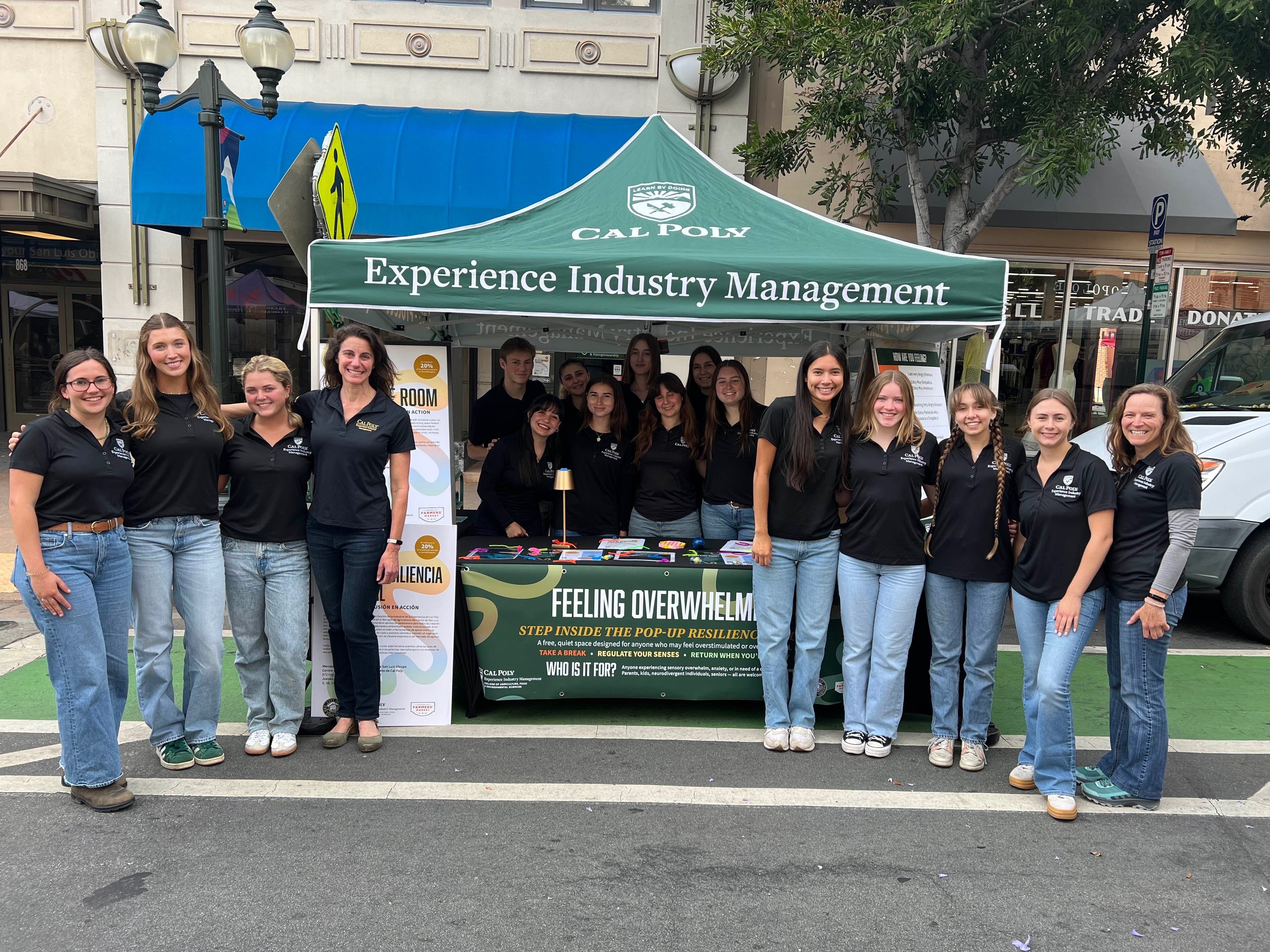
“The biggest impact for the community is that there is an overwhelming appreciation from individuals who identify as neurodivergent and their families that this space meets their specific needs,” she said. “The conversations I have had with the San Luis Obispo population has truly warmed my heart and demonstrated that we are making a positive difference.”
With plans for taking the pop-up resilience room across the state, Karson said that the partnership between Cal Poly and her own business will continue to generate awareness about neurodivergence. The resilience room will be available to over 400 conference attendees in Lake Tahoe at the annual California Travel Association Summit this October.
“This partnership not only provides invaluable exposure for Cal Poly’s Learn by Doing approach but also sets a new standard for neuroinclusive event design in the travel and agritourism industry,” Karson said.
Want more Learn by Doing stories in your life? Sign up for our monthly newsletter, the Cal Poly News Recap!

